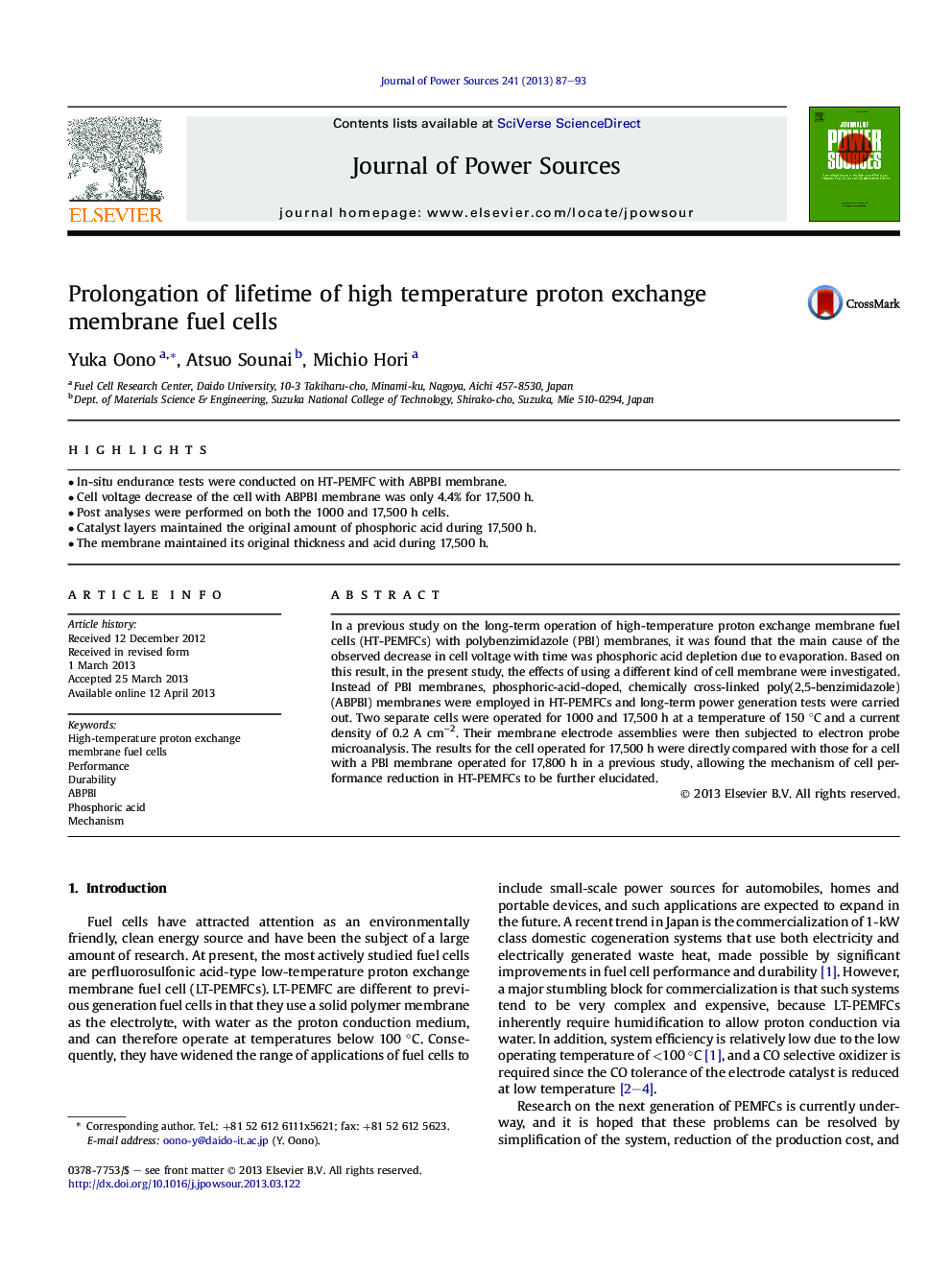| Article ID | Journal | Published Year | Pages | File Type |
|---|---|---|---|---|
| 7739499 | Journal of Power Sources | 2013 | 7 Pages |
Abstract
In a previous study on the long-term operation of high-temperature proton exchange membrane fuel cells (HT-PEMFCs) with polybenzimidazole (PBI) membranes, it was found that the main cause of the observed decrease in cell voltage with time was phosphoric acid depletion due to evaporation. Based on this result, in the present study, the effects of using a different kind of cell membrane were investigated. Instead of PBI membranes, phosphoric-acid-doped, chemically cross-linked poly(2,5-benzimidazole) (ABPBI) membranes were employed in HT-PEMFCs and long-term power generation tests were carried out. Two separate cells were operated for 1000 and 17,500 h at a temperature of 150 °C and a current density of 0.2 A cmâ2. Their membrane electrode assemblies were then subjected to electron probe microanalysis. The results for the cell operated for 17,500 h were directly compared with those for a cell with a PBI membrane operated for 17,800 h in a previous study, allowing the mechanism of cell performance reduction in HT-PEMFCs to be further elucidated.
Related Topics
Physical Sciences and Engineering
Chemistry
Electrochemistry
Authors
Yuka Oono, Atsuo Sounai, Michio Hori,
